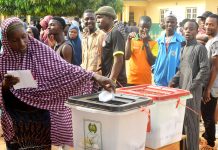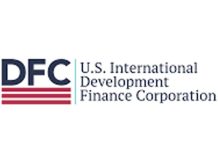Recent data from the National Bureau of Statistics (NBS) reveal a sharp decline in Nigeria’s Gross Domestic Product (GDP) in dollar terms, dropping nominally by 52.63% between 2023 and 2024 (Q1-Q3), primarily due to currency devaluation.
The average exchange rate in the first three quarters of 2023 was ₦580.96/$, compared to ₦1,427.73/$ in 2024. Nominal GDP during this period rose from ₦164 trillion in 2023 to ₦190.92 trillion in 2024. However, when converted to dollars, GDP plummeted from $282 billion in 2023 to $134 billion in 2024, representing a dramatic erosion in value.
This economic contraction undermines the government’s ambitious target of achieving a $1 trillion economy by 2030. President Bola Tinubu remains optimistic, emphasising a 3.46% GDP growth rate announced by the NBS on 25 November 2024 as evidence of progress. According to his media adviser, Sunday Dare, the growth reflects the administration’s commitment to economic transformation and improving living standards.
However, critics highlight the disparity between statistical growth and the lived realities of Nigerians. A recent General Household Survey (GHS) found that 65.8% of households could not afford healthy or preferred foods in the past month due to financial constraints, with 70% of those facing food insecurity actively engaged in farming. This paradox underscores the prevalence of “working poor” in a nation grappling with structural challenges.
Comparisons to other economies provide insight into Nigeria’s challenges. Argentina, once among the world’s wealthiest nations, saw its GDP peak at $530 billion in 2011 before falling to $385 billion by 2020 due to inflation, debt crises, and political instability. In contrast, South Korea’s steady investment in technology, infrastructure, and industrial development helped its GDP grow from $576 billion in 2000 to $1.8 trillion by 2024, lifting it into the high-income category.
The lesson? Sustainable growth requires more than nominal increases; it demands structural reforms, economic diversification, and investment in human capital.
Nigeria’s GDP rebasing in 2014 marked the economy at over $570 billion. A decade later, it has declined by 77%, a stark reminder that currency devaluation and statistical adjustments alone cannot achieve long-term economic goals. Experts like Yakubu Ibrahim warn that achieving the $1 trillion target by 2030 would require consistent annual growth exceeding 20%, a rate far beyond the current 3.46%.
As former FIRS executive chairman Ifueko Omoigui-Okauru aptly noted, “In developing a vision, sometimes people focus too much on results and less on the process.” Without clear and inclusive strategies addressing education, infrastructure, healthcare, and governance, the pursuit of a $1 trillion economy risks becoming a numerical illusion rather than a tangible reality.
For millions of Nigerians, the critical question remains: when will economic growth translate into improved living standards, beyond statistics?













